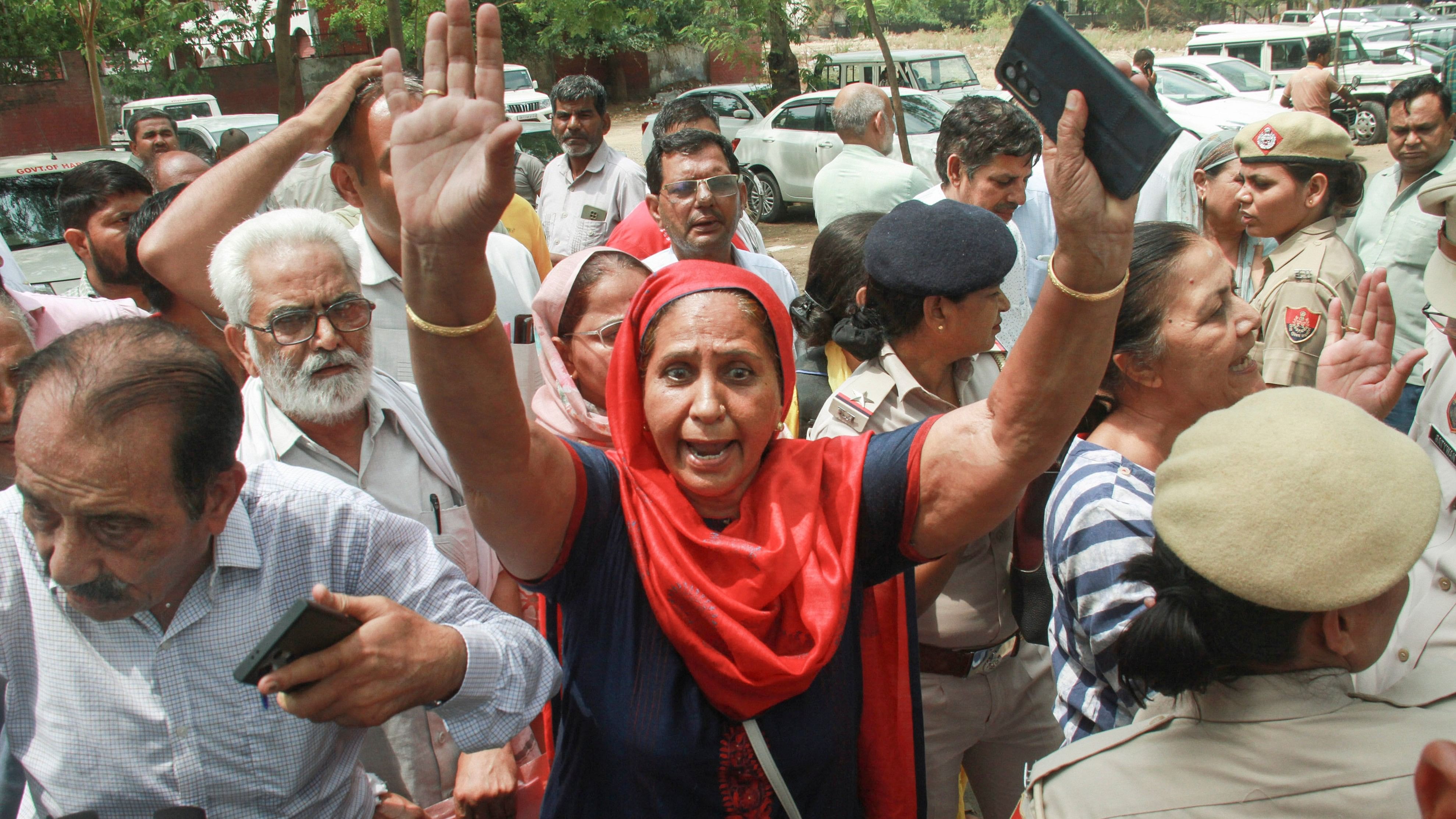
If complaints are found worthy to take up then an acknowledgement shall be sent to the complainant, the order said.
Credit: PTI Photo
New Delhi: The Centre has reduced redressal time of public grievances, raised on a dedicated portal, to 21 days, from the existing 30 days.
In an order mentioning revised guidelines, it has suggested appointment of dedicated officers to handle complaints besides emphasising "whole of the government approach”.
"This means that in no case grievance shall be closed by stating 'Does not pertain to this Ministry/Department/ Office' or its equivalent language. Efforts shall be made to transfer the same to the right authority if the subject of the grievance does not pertain to the receiving Ministry," said the order issued by the Department of Administrative Reforms and Public Grievances (DARPG).
In the ministries/departments where a large number of public grievances are received, it is advised to appoint a dedicated nodal officer with independent charge on sufficient rank so as to ensure timely and qualitative disposal of public grievances, it said.
The order mentioning revised guidelines was issued following the directions of Prime Minister Narendra Modi given during his interaction with the secretaries to the government of India on June 29.
Following the directives, DARPG undertook a review of existing processes to make Centralised Public Grievance Redress and Monitoring System or CPGRAMS -– an online portal that allows people to raise complaints against government departments -- "more sensitive, accessible and meaningful to the citizen".
"The 10 steps reforms initiated in CPGRAMS have significantly brought down the average resolution time. Keeping this in view, the maximum redressal time advised by DARPG for cases in CPGRAMS is further reduced to 21 days," said the order dated August 23, 2024.
In cases, where the redressal requires longer time, an interim reply may be given stating the reason for the same and expected timeline when the grievance could be resolved, it said.
"The focus of the guidelines has been to reduce timelines of grievance redressal to 21 days and improve quality of grievance redressal by adopting technology improvements like integration of grievance portals, root cause analysis using AI enabled dashboards and assessment matrix like the Grievance Redressal Assessment Index," said V Srinivas, Secretary, DARPG.
He said capacity building of grievance redressal officers is envisaged through the state administrative training institutions.
Srinivas, a 1989-batch Indian Administrative Service (IAS) officer of Rajasthan cadre, said the policy guidelines were formulated after detailed consultations with Ministries/Departments, States/ UT governments, knowledge partners and state administrative training institutes "The policy guidelines also empower citizens by providing an escalatory appeal mechanism," he told PTI.
Appeal workflow in CPGRAMS presently requires appointment of an officer of the Additional /Joint Secretary rank as the Nodal Appellate Authority (NAA).
"Sub Appellate Authorities (SAA) may be appointed by the Ministries/Departments under the NAA... The Appellate Authorities are required to examine the appeal independently and take a view to allow or reject the appeal. The appeal shall be disposed of in a maximum of 30 days," the order said.
It said a dedicated grievance cell shall be set up in every ministry.
The cell shall be adequately staffed with resources having domain knowledge of schemes/ programmes of the Ministry and also having experience and skill for data analytics and root cause analysis of grievances, the order said.
On resolution of grievance, an SMS/email is sent on the registered mobile number & email address of the citizen and if the citizen is not satisfied with the redressal, they can provide feedback on the portal and raise an appeal on it.
"Going forward feedback will be integrated with other mechanisms like WhatsApp, chatbot etc so that citizens who are not satisfied with their grievance redressal can file an appeal through any of the above modes of feedback," it said.
The DARPG also asked government departments to use two AI powered analytical tools for deeper analysis of grievances.
"Public grievances are direct feedback from the citizens on performance of programmes/policies/service delivery of the government. Analysis of grievances provide meaningful insight and indicate the areas that require specific attention. Analysis of grievances is extremely useful for driving efficiency in government programmes and policies," the order emphasised.
Complaint relating to corruption, bribery, harassment or having any other vigilance angle of citizens shall be examined closely under the broad guidelines and timelines prescribed by the Department of Personnel and Training (DoPT) and central Vigilance Commission (CVC) and in consultation with the Chief Vigilance Officer (CVO) of the Ministry, according to grievance handling process annexed with the order.
If complaints are found worthy to take up then an acknowledgement shall be sent to the complainant, it said.
However, if the complaint is found false, malicious, intentional and filed by habitual complaints time and again then "such complainants are flagged and blocked in CPGRAMS", according to the grievance handling process.